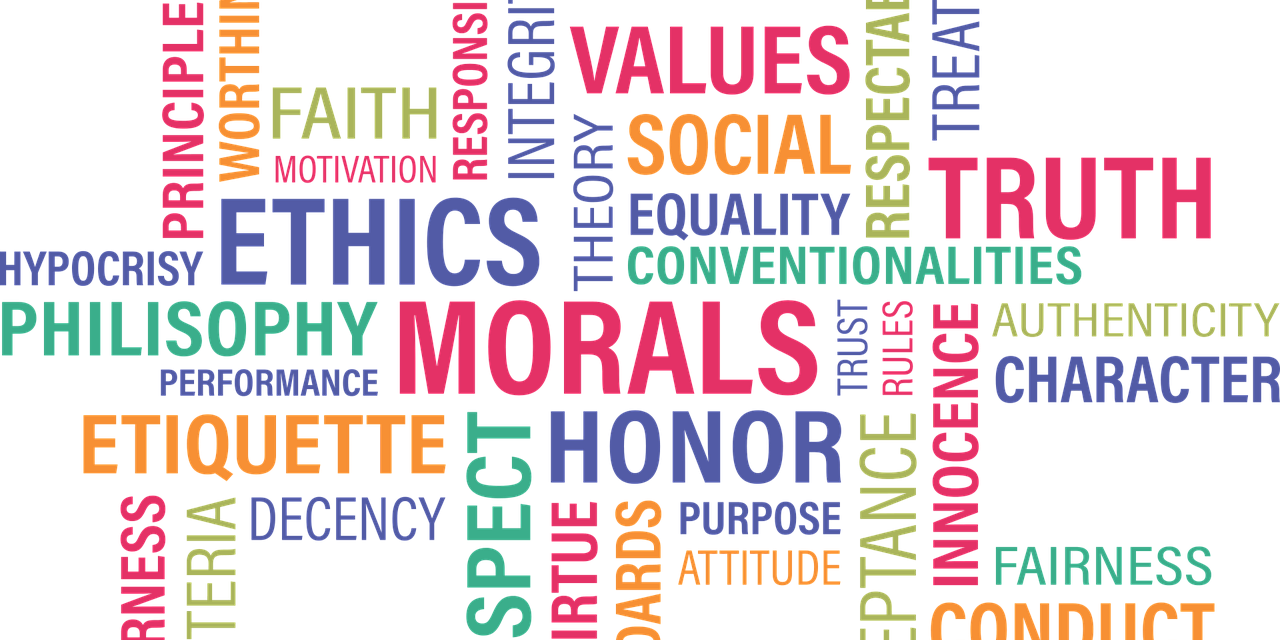The following is the second of two talks that I have given several times as a guest speaker at a local college for their business administration classes as well as several small business workgroups. You can read the first talk on the Characteristics of an Effective Leader. The purpose of this article is considering ethics and its place in leadership. I want to focus on integrity, but first let’s take a few moments to look at some signals of unethical behavior for the sake of contrast.
Signals of Unethical Behavior
“Unlimited power is apt to corrupt the minds of those who possess it.” — William Pitt, the Prime Minister of Britain from 1766 to 1778, in a speech to the UK House of Lords in 1770
The following examples are key elements that, if present in senior leaders, are signs of unethical behavior taking place in the workplace. This list is from Ethics in Leadership: The 8 Rules to Prevent Misuse of Corporate Power by Jack Zenger
- Enormous power over subordinates’ destinies that makes underlings reluctant to criticize or blow the whistle.
- Access to large sums of money that have low visibility and minimal accountability.
- Control over extensive corporate perquisites that can be used for one’s personal benefit.
- Absence of operational checks and balances that are present at lower levels.
- Minimal oversight from the Board of Directors.
- Huge incentives to reach certain milestones.
- Relentless pressures from Wall Street to produce continual improvement in quarter-to-quarter results.
- Belief by individuals that they are responsible for the financial success of the firm and therefore deserving of large financial rewards.
Each of these are signals we have all seen in various great companies over the years that ultimately led to their collapse and eventual failure. One of the most famous from our time is the Enron debacle. On the surface, Enron’s leaders maintained a façade of a highly successful business with extremely high profit margins. Their leadership held a belief that they were above the law and could continue satisfying their greed without fear of being caught by manipulating financial statements. Eventually, their actions caught up with them and resulted in well over $60 billion in losses for investors.
The findings from studies done on this issue are striking:
- 42% of employees don’t understand or even know what are their company’s vision, mission or values.
- 25% of employees feel they cannot trust their employer.
- 46% of employees are looking elsewhere because of their employer’s lack of transparency.
- Organizations with low employee engagement scores show 18% less productivity, 16% less profitability and 37% less job growth.
I have personally seen examples of one or more of these behaviors in multiple company leaders that I have dealt with, from fortune 500 companies to small local businesses. In each case, the leadership either corrects their actions or it results in harm to the company reputation, its employees, and its investors.
Lynn S. Paine, Professor of Business Administration at Harvard Business School, writes, “Rarely do the character flaws of a lone actor fully explain corporate misconduct. More typically, unethical business practice involves the tacit, if not explicit, cooperation of others and reflects the values, attitudes, beliefs, language, and behavioral patterns that define an organization’s operating culture. Ethics, then, is as much an organizational as it is a personal issue.”
Self-awareness of both your strengths and weaknesses affects every aspect of a leader’s life, from social interactions and decision-making to self-discipline and integrity.
So, how do you combat unethical behavior in your own leadership role?
The key is a committed approach to leading by example and holding fast to several goals. Commit in your mind that regardless of the pressure or behavior of your management, you will lead with integrity and your actions will be a brilliant example for others to follow.
Lead By Example
- Set your sights high: Make sure your goals are lofty and challenging. They should drive you toward being a successful leader.
- Correct for potential weaknesses: Analyze your weaknesses. Don’t be afraid to ask for input of those around you. Often times your co-worker, subordinate, or manager will be able to see an area for improvement that you may not recognize.
- Learn from your mistakes
- Be personally competent in your interactions and communications. Clearly state what you are thinking – say what you mean and mean what you say.
- Be open to new ideas. Others around you will often have valuable input that helps you reach a goal faster or in a better way.
- Accept responsibility for your mistakes and don’t blame others. I have seen this one ruin the careers of several people. Recognize that the truth will come out eventually. It is better to acknowledge a mistake and lead the solution to correct it, than to blame your team or others. This one speaks volumes about the type of leader you will be and whether or not you are a problem solver vs. a problem creator. This one also garners with it the highest respect from a team if their leader can accept responsibility for a problem and strive to solve it without blaming them for the mistake.
- – Show initiative – go above and beyond your responsibilities to deliver a higher quality product. Don’t sit back and let others take the lead.
- Invest more in identifying and developing your strengths: Determine what your strengths are and focus on really developing those skills. Again, this is a perfect opportunity for peer feedback and also consider what you enjoy doing for work. These strengths will become what sets you apart as a leader.
- Build a strong leadership foundation with character as your cornerstone: Throughout the whole process, don’t forget to have an overall focus on your character. This will provide you the foundation of key principles that you can apply in every area of your life and have it govern your actions in the workplace. Consider for example, optimism and a singular focus on an objective will inspire your team to follow. Let strong character principles permeate all areas of your life and the natural outgrowth will be an improved leadership style.
- Developing strengths often requires a different approach to become well rounded. For example, assertiveness is powerful when combined with honesty and integrity: Leadership is not a basic task that can be completed and then you move on to the next thing. Leadership is an effort that you must constantly analyze to consider where you can improve or how you can better complement one aspect by building another.
Conclusion: Behave with Integrity
Integrity is the overall focus here. These are just the tip of the iceberg examples of how you can carry this out. If you recall, I stated that you by applying this approach to your entire life, an improved leadership style will develop as an outflow. Let’s consider these points as identified byJack Zenger in Ethics in Leadership: The 8 Rules to Prevent Misuse of Corporate Power:
- Be approachable – Make sure subordinates, peers and managers all know that they can approach you at anytime with any question or comment. Be ready to receive it graciously and respond properly in kindness. This will foster a close relationship of respect between you and the other individuals.
- Be trustworthy – Don’t give anyone reason to doubt or soil your reputation. Make sure you build and maintain a level of trust with all individuals you interact with. Your reputation will precede you as you interface with other leaders, so make sure it is a reputation that is talked about for the right reasons.
- Act with humility– This one can be tough, but always make sure you give credit where credit is due. I have rarely seen this done properly in the workplace, but when it is, leaders often talk about that individual with extremely high regard. This also is applicable with employees under you. Respond to them with humility and they will respect and trust you more for treating them as individuals rather than numbers on financial balance sheet.
- Listen with great intensity– This is another one that applies up or down on the corporate ladder and really goes hand in hand with the prior one. One of the best examples of humility is listening to a leader or an employee and then providing careful and considerate feedback based on their input.
- Make decisions carefully– Don’t jump into a decision without considering all the facts. I have seen a hasty decision be the downfall of many individuals and projects where if they had taken the time to talk with others and simply gather the facts, they would have saved great time, money and pain.
- Act assertively – Once you have made your decision, don’t waffle. Jump in with both feet and lead. This will inspire others around you to exhibit the same qualities and commitment to the effort and result in improved morale on the project.
Integrity is such a small word, but carries with it a lot of responsibility. Some of today’s leaders are characterized by a lack of trust and confidence from their employees and certainly don’t portray an ideal example to follow.
Take these principles to heart and apply them in all areas of your life. Make sure your leadership, be it at home, in the workplace, in a charity, or anywhere be characterized by integrity. This will produce a leadership style that will be an example others can look up to and follow in their own lives.
Sources:
- LEADERSHIP UNDER THE MICROSCOPE whitepaper by Jack Zenger, Kurt Sandholtz, and Joe Folkman
- Ethics in Leadership: The 8 Rules to Prevent Misuse of Corporate Power by Jack Zenger
- Are you as Honest as you Think You Are? The Leadership and Character Conundrum by Jack Zenger
- The Character of Leadership by Brian K. Cooper, Joseph C. Santora, and James C. Sarros
- Enron and World Finance: A Case Study in Ethics – Edited by Paul H. Dembinski, Carole Lager, Andrew Cornford and Jean-Michel Bonvin



